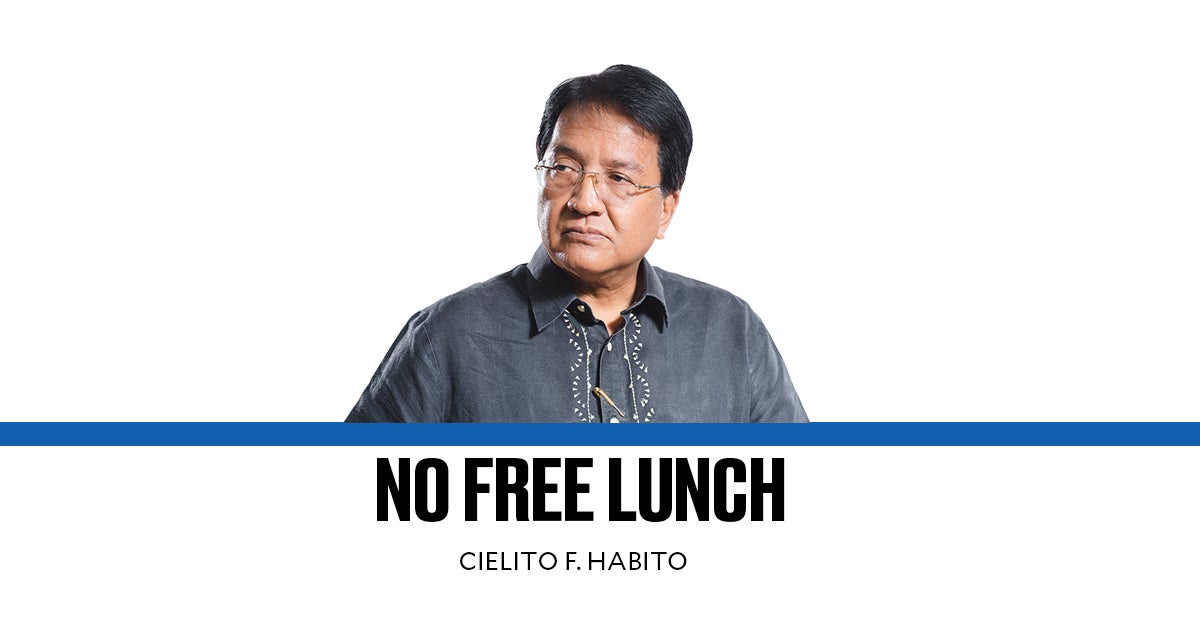Loving as a living

Why are Filipino workers so kind and giving?” the late celebrity chef Anthony Bourdain once wrote. “Doctors, nurses, housekeepers, babysitters … people who you’d call ‘caregivers’ but who actually care.” Our domestic and healthcare workers here and overseas stand out for extraordinary compassion. Many are mothers who have left their own children to care for someone else’s child with the same motherly care, and yes, love. From doctors to nannies, Filipinos are known overseas not only for their hard work and professionalism but also for the love, care, and compassion they extend to the families, employers, and patients they serve.
If there is one attribute Filipinos from all walks of life stand out for, it must be this capacity for selfless service to others with a genuine concern rarely matched elsewhere. I just met a couple originally from Mindoro who have been personal caregivers in the US West Coast for the last 20 years. They last worked for an elderly couple, a retired psychiatrist whose wife suffered from Alzheimer’s disease. I could imagine how great a challenge and sacrifice it must have been to care for the woman, with all the difficulty of attending to the most personal needs of an elderly person unable to help herself—feisty, irritable, and often unreasonable at that. But they cared for her with the patience and concern of loving children to a parent. The husband loved them so much that he asked them to stay with him long after she had died. Unfortunately, he now has to let them go because he must sell his house and move to a nursing home. Now, they face an uncertain future, but have at least saved enough to buy a house of their own, and have a grown son with a good job, who could help support them.
I’ve seen many similar stories of Filipinos making a living loving and caring for others. In Hong Kong, Maria worked as a caregiver for an elderly couple for over five years. Mrs. Lee, her employer, had become frail and had various health complications. Separated from her own family back home, Maria cared for Mrs. Lee like her own mother. She made sure Mrs. Lee took her medication on time, prepared her meals with special care, and took her to regular doctor appointments. When Mrs. Lee fell ill, Maria stayed up for nights, attending to the woman’s needs amid her own physical exhaustion. Moved by Maria’s dedication, Mrs. Lee gave her paid leaves to visit her family in the Philippines every two years, uncommon for domestic workers there. When Mrs. Lee passed away after a long illness, Maria grieved with the woman’s family, who lovingly called her their “angel.” In gratitude for her devotion, they continued to support Maria financially to help her return home and set up a small business.
Carlos, a Filipino nurse working in a care facility in London, became close to one of his elderly patients, Mr. Anderson, who had no immediate family. A widower, Mr. Anderson had lived alone for many years, and as his health declined, became more withdrawn. Carlos often spent extra time with him, listened to his stories about his past, showed patience when the old man became confused and offered encouraging words. When Mr. Anderson fell seriously ill and was hospitalized, Carlos’ superiors agreed that he stay with him as part of his job. Carlos narrated how one night, when Mr. Anderson seemed agitated and in pain, he noticed his patient’s face soften as he held his hand and spoke to him calmly in a soothing voice. Mr. Anderson smiled faintly and whispered, “Thank you for being here.” He passed away peacefully in his sleep that night, leaving Carlos deeply moved by the trust and connection they had formed. He later attended the small funeral with his relatives, who thanked him for being such a compassionate and caring presence in Mr. Anderson’s life.
In Saudi Arabia, Elena worked as a nanny for a foreign family with three young children. Her employers often traveled for business, and having children of her own back home, Elena felt the children’s loneliness and anxiety as they missed their parents, especially at night. Elena would tell them bedtime stories about the Philippines and teach them Filipino songs and games. When the family went on a vacation to a cold country one winter, the youngest child fell sick, and despite her own discomfort with the cold, Elena stayed by the child’s side all night and nursed her back to health. Like many other children cared for by Filipino nannies, they came to speak English with a distinct Filipino accent, and her employers didn’t seem to mind.
Such is the selfless love Filipinos are known for worldwide, a love we can only pray our politicians would also have. Such is the love we celebrate with our families at Christmas. May we all enjoy a blessed and joyful Christmas season with the same love in our hearts!
—————-
cielito.habito@gmail.com


















